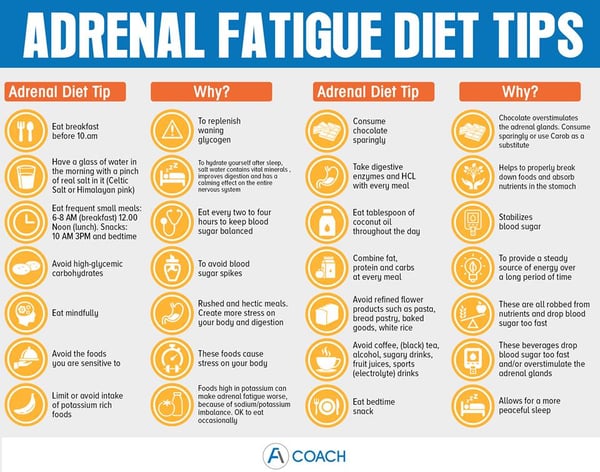
The term adrenal fatigue has become somewhat of a trend these days, and for good reason. The modern-day world has created a laundry list of pressures that didn’t exist even ten to fifteen years ago, and human stress levels are skyrocketing because of it.
You might think of stress as something inherently negative, but that’s far from the case. The very definition of a stress response is when the adrenal glands are activated within the HPA axis (hypothalamic-pituitary axis). A good example of this is if you stay up late with friends. You might not consider it stress because you are having a good time. But your adrenal glands have to kick in to give you that extra energy you need to stay up past your usual hours; this is, by definition, stress. It’s a natural, normal reaction that the human body couldn’t function without.
While the body’s innate response to stress hasn’t changed over time, what has changed dramatically are factors such as the amount of time spent on screens, an abnormally fast-paced lifestyle, a diet rich in processed foods, lack of social and familial support, and more. The stressors faced are no longer acute ones, such as running from a tiger. Instead, they’re constant, everyday stressors that cause unnaturally high levels of stress hormones (mainly cortisol) that can contribute to a poor immune system, metabolic issues, and other health challenges.1
The good news is, there are natural strategies you can begin implementing today to support the adrenals and regain your health.
Exercise
A sedentary lifestyle is solidly linked to poor health and is a foundation of managing stress and supporting the adrenals.*2
As a society, physical movement and activity are shamefully low, and it’s common to put exercise into a box. In reality, exercise extends far beyond logging hours at the gym and should be something you enjoy doing. Whether that be jogging, walking, yoga, Tai Chi, dance, or any other activity that increases the heart rate and keeps you moving, commit to making physical activity an important part of your life.
Ideally, adopt a balanced regimen of strength-based movement, cardiovascular activities, and meditative movement techniques like Tai Chi, Qi Gong, or yoga.

Get out in nature
Studies show that spending only twenty minutes in nature significantly lowers stress hormones, therefore supporting the adrenal glands.3
The effects of getting out in nature applies to both adults and children, and research has even pointed to a potentially lower risk of concentration problems in kids that spent more time playing outdoors. It’s important to redefine how you “decompress,” which, nowadays, tends to mean tuning out in front of the television. Instead, take a walk around the block, walk barefoot in your backyard, or take part in any other activity that allows you to connect with nature.
Calm your mind
There’s no magic way to calm the mind, and each individual must find what works for them. Some find traditional, seated meditation to be beneficial, and others prefer the meditative movement techniques mentioned above, walking, creating art, playing music, scheduling regular social gatherings with friends, or anything else that brings you a sense of peace.
Change your diet
Diet plays a vital role in adrenal support, especially eating for balanced blood sugar. A diet high in refined carbohydrates and sugary foods causes constant spikes in blood sugar, followed by a crash. This leads to a vicious cycle of hunger and cravings for more sugary foods and a significant tax on the adrenal glands.
Work to lower your intake of foods with white sugar like candy, commercial baked goods, bread, pasta, and white rice. Instead, eat adequate protein with every meal, healthy fats, and a plethora of nutrients and fiber from vegetables and fruits. For those struggling with high stress and adrenal fatigue symptoms, eating a healthy protein snack every one and a half to two hours can help.
It’s also important to get enough high-quality salt in the diet, especially Himalayan salt. Many individuals with adrenal issues end up craving salt, and salt is actually quite good for most people. If you are salt-sensitive, it’s important to monitor your blood pressure and work with your provider, but most people do well with salting homemade meals to taste.
Organ meats like liver, adrenals, and kidneys were historically part of many diets around the world, as they provide building blocks for the body.
Consider supplementation
After implementing dietary changes, certain herbs and nutritional supplements are commonly used to support the adrenals as well. B vitamins and minerals like sodium, potassium, magnesium, and calcium are key. Many cultures have used tonifying herbal formulas for adrenal health, such as ginseng from China and Ashwagandha from East India.* Some integrative medical practitioners also use glandulars to support the adrenals.*
Along with tonifying, it’s also important to focus on relaxation. You can support better relaxation with teas and herbal preparations that include chamomile, lavender, Passiflora, valerian skullcap, and lemon balm, among others. Magnesium is also a critical mineral to support relaxation, sleep, and hundreds of other bodily processes.*
Get plenty of rest
Research clearly shows that sleep loss results in elevated cortisol levels.4 To best support the adrenals, adequate sleep and rest is foundational. Take the time to learn about and implement proper sleep hygiene techniques, such as turning off screens and devices one to two hours before bed and keeping your bed only for sleep and sex. Implementing a relaxation technique before falling asleep, sleeping in a completely dark room, and avoiding caffeine after mid-day is helpful as well.
Between physical movement, plenty of rest, a blood-sugar-balancing diet, time in nature, calming activities, and possible supplementation, you can ensure an optimized lifestyle for adrenal health and stress management.* The fast pace of today’s society can feel overwhelming, but supporting the adrenals naturally doesn’t have to be.
By Dr. Ian Bier
* These statements have not been evaluated by the Food and Drug Administration. This product is not intended to diagnose, treat, cure or prevent any disease.

1 Mariotti, A. (2015). The effects of chronic stress on health: New insights into the molecular mechanisms of brain-body communication. Future Science OA, 1(3):FSO23. doi:10.4155/fso.15.21.
2 González, K., Fuentes, J., & Márquez, J.L. (2017). Physical Inactivity, Sedentary Behavior and Chronic Diseases. Korean Journal of Family Medicine, 38(3):111-115. doi:10.4082/kjfm.2017.38.3.111.
3 Hunter, M.R., Gillespie, B.W., & Chen, S.Y. (2019). Urban Nature Experiences Reduce Stress in the Context of Daily Life Based on Salivary Biomarkers. Frontiers in Psychology. doi:10.3389/fpsyg.2019.00722.
4 Leproult, R., Copinschi, G., Buxton, O., & Van Cauter, E. (1997). Sleep loss results in an elevation of cortisol levels the next evening. Sleep, 20(10):865-70.



















